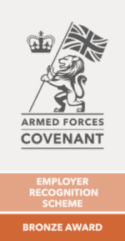What are Emergency Procedures
It is important to have emergency procedures or plans in place. It enables you to quickly deal with emergencies that can pose a risk to your people or property. For smaller businesses this may be a serious injury or fire. For other businesses it could be an explosion, electrocution, poisoning, release of radioactivity or chemical spill.
Every business needs a plan in place that is developed, implemented, and tested. This allows incidents to be brought back under control quickly. Business are then able to resume normal operations as quickly as possible.
In emergencies people are more likely to respond reliably if they are well trained and competent, take part in regular and realistic practise and have clearly agreed plans and responsibilities. These should be recorded, and rehearsed regularly.
Why are Emergency Procedures needed?
The development of emergency procedures is required by Regulation 8 of the Management of Health and Safety at Work Regulations (MHSWR) 1999.
“Every employer shall – (a) establish and where necessary give effect to appropriate procedures to be followed in the event of a serious and imminent danger to persons at work in his undertaking.”
Companies that work within the ISO accreditation framework are also required under ISO 45001:2018 to meet clause 8.2 which covers Emergency preparedness and response. If you work on a site where at least 25 tonnes of dangerous substances are held, The Dangerous Substances (Notification and Marking of Sites) Regulations 1990 applies to you.
Typical Scope of an Emergency Procedure
Emergency procedures should cover –
- What might happen and how the alarm would be raised
- The communication of the emergency when it arises
- The planned response to the emergency
- The people that will be involved in the procedures and they will need eg first aiders, fire marshals, confined space rescue teams
- What equipment is needed during the emergency
- Who will lead in the emergency? Often referred to as the competent person
- Who else needs to be involved to support the plan
- Site specific plans including shutting down electrics, water, plant, etc
- How people will be evacuated, including special consideration for vulnerable people and those with disabilities
- Ensure there are enough emergency exits
- How to reduce the effects of the emergency
- Actions to clean up and return to normal operation
Other points to consider –
- Make the plan, document it, and communicate it within your business
- Train those with specific responsibilities within on the plan
- Arrange specialist training for key roles such as fire wardens, first aiders etc
- Factor in shift working or people required to work out with normal opening hours including those that have to work on their own
- Decide on a place of safety and provide emergency lighting
- Use signage within the building to help workers, clients, and all visitors
- Ensure there are enough emergency exits, ensure they are clearly marked and are unobstructed
- Notify fire and rescue services if 25 tonnes or more of hazardous substances are on the premises and arrange clear signage
Summary
Emergency procedures help businesses to react in an emergency. They are required by law and are there to mitigate losses and bring the event under control quickly. The impact of not getting the response right could result in major loss of life, long term ill health, environmental effects, and significant damage to buildings/equipment. Without an emergency procedure in place, the delays and cost involved in getting your business back to normal operations will also be much greater.
Next Steps
Need help with putting your emergency plans together? Contact Jen Hancock in the office on 01592 724797 or on [email protected].
Need specialist training? Check out the weblinks below for more information, call the office on 01592 724797 or email [email protected].
Training for Emergency Procedures
Employees are more likely to respond reliably if they are well trained and competent. The courses below are ideal for supporting this.
Fire Warden
First Aid
Supervising First Aid for Mental Health
Confined Spaces







